#Jefferson in Paris
Explore tagged Tumblr posts
Text





James Earl Jones (1931 - 2024)
A beloved EGOT with a film and stage career as memorable as his distinguished voice.
#James Earl Jones#in memoriam#Roots The Next Generations#The Feast of All Saints#Sommersby#Fences#Jefferson in Paris
209 notes
·
View notes
Text

Thandiwe Newton in as Sally Hemings in Jefferson in Paris (Film, 1995).
#thandiwe newton#jefferson in paris#sally hemings#perioddramaedit#18th century#jenny beavan#john bright
93 notes
·
View notes
Text
“France is in the throes of violent birth”: Thomas Jefferson and the 1789 French Revolution
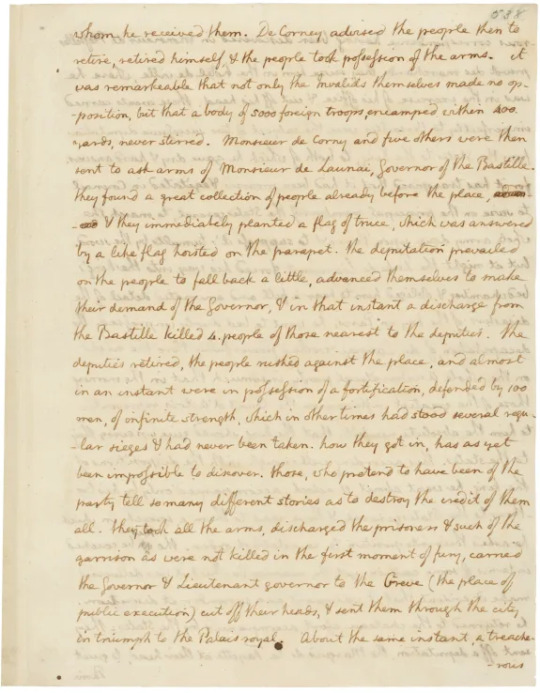
"The deputies retired, the people rushed against the place, and almost in an instant were in possession of a fortification, defended by 100 men, of infinite strength..."
• Ambassador Thomas Jefferson report on the events on 14 July 1789.
The excerpt shown here is from a letter in Jefferson’s own hand to Secretary of Foreign Affairs John Jay. In great depth, he describes the events of July 14, 1789, including the storming of the Bastille in Paris. The Bastille was a symbol of the old regime, and housed arms, gunpowder, and prisoners.
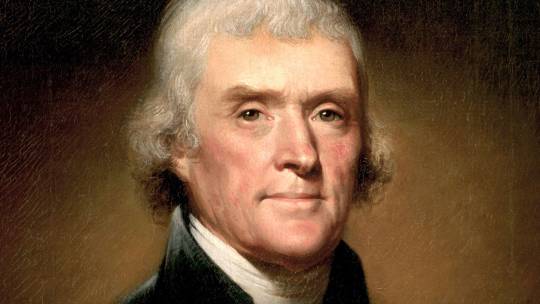
On 14 July 1789, the U.S. Ambassador to France, Thomas Jefferson, was a witness to the events of a day in Paris that is commonly associated with the beginning of the French Revolution. Jefferson recorded the events of the day in a lengthy and detailed letter to John Jay, then Secretary of Foreign Affairs.
The American Revolutionary War began as a conflict between the colonies and England. In time, what began as a civil disturbance turned into a world war drawing France, Spain, and the Netherlands into the hostilities. France would send troops, ships, and treasure to support the American effort. During the war, one of the first priorities of the French government and its allies was to raise funds to fight the war.
When the Treaty of Paris was signed in 1783, France was virtually broke and on the edge of social catastrophe, the result of decades of war with England and other countries. The poor suffered hunger and privation. By 1789, revolution would come to France.

In 1785, Thomas Jefferson arrived in Paris to replace Benjamin Franklin, who was retiring as ambassador to France. At the age of 81, Franklin returned to the United States where he would serve as President of the Pennsylvania Assembly and also participated in the Constitutional Convention of 1787.
John Adams was reassigned to London where he would be the first American ambassador to the Court of St. James. Jefferson remained on duty in France until late 1789 when he returned to the United States. While in France, Jefferson reported on developments at the court of King Louis XVI, the country at large, and the rest of Europe.
Jefferson was sympathetic to the revolution, opening his home in Paris to its leaders and assisting his friend the Marquis de Lafayette with drafting the Declaration of the Rights of Man. As the first Secretary of State under the Constitution and George Washington, his support for France and the revolution continued.
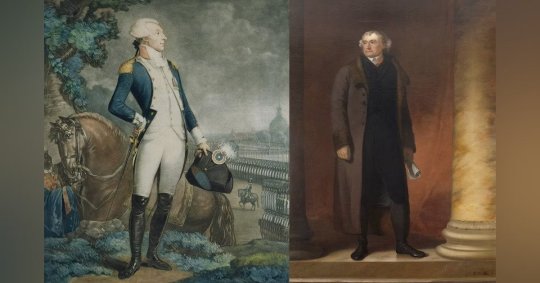
His friendship to the Marquis de Lafayette, who served in the War of Independence and lived almost 10 years in the USA, became very important in the beginning of the French revolution. The Marquis was the General of the french forces 1789 and tried to prevent a civil war and turmoil. He corresponded with Jefferson, who came from a country with the same experiences. Jefferson and the Marquis agreed that France was not mature to become a republic but a constitutional monarchy, like in Great Britain. However, this was the decision of the national assembly, of which the Marquise was a member. Jefferson went daily to Versailles to inform himself about the decisions. During Jefferson’ s visits, they passed the following laws:
1. Freedom of the person by habeas corpus 2. Freedom of conscience 3. Freedom of the press 4. Trial by jury 5. A representative legislature 6. Annual meetings 7. The origination of laws
This totally fit to Jefferson’s principles. In addition, there was passed a bill, which was prepared by Lafayette and Jefferson and which abolish any title or rank to make all men equal.
Thomas Jefferson also helped his friend Lafayette to bring the different opinions in his party about the constitution to an agreement. France should become a constitutional monarchy.
However, after this, Jefferson recognised that he is not allowed to interfere in the French domestic affairs and that he should be neutral and represent his country. He left France in the thinking that the Revolution was over and that France would grow to a constitutional monarchy. Jefferson was proud of the achievements in France and after his return to USA he declared: “ So ask the travelled inhabitant of any nation, In what country on earth would you rather live? - Certainly, in my own where are all my friends, my relations, and the earliest and sweetest affections and recollections of my life. Which would be your second choice? France."
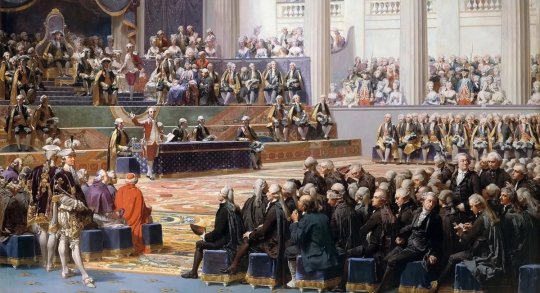
For all his francophile fervour, as the chief American diplomatic representative, Jefferson’s Enlightenment had been a conventionally English one, dominated above all by John Locke. And Jefferson’s first impressions of America’s principal ally in the Revolution were not positive ones. “The nation,” he confided to Abigail Adams in 1787, “is incapable of any serious effort but under the word of command.”
The stars of the French Enlightenment - Voltaire, Diderot, d’Holbach - were frivolous and useful only for manufacturing “puns and bon mots; and I pronounce that a good punster would disarm the whole nation were they ever so seriously disposed to revolt.”
The events of the spring of 1789 soon changed all of that before Jefferson’s very eyes. “The National Assembly,” he excitedly wrote to Tom Paine, “having shewn thro’ every stage of these transactions a coolness, wisdom, and resolution to set fire to the four corners of the kingdom and to perish with it themselves rather to relinquish an iota from their plan of a total change of government” had excited Jefferson’s imagination as nothing before.
Even when the Paris mob seized the Bastille and beheaded the hapless officers of the Bastille, Jefferson shrugged it aside as a mere incident, since “the decapitations” had accelerated the king’s surrender. As Jefferson would write later, “in the struggle which was necessary, many guilty persons fell without the forms of trial, and with them some innocent.” But rather than seeing the French Revolution fail, “I would have seen half the earth desolated. Were there but an Adam and an Eve left in every country and left free, it would be better than as it now is.”

Jefferson’s admiration for the French Revolution seemed to increase in direct proportion to his distance from it. And once he returned to America at the end of 1789, one of his chief motives for taking the post of Secretary of State was to observe and encourage the French eruption, when the National Assembly seized and redistributed the lands of the Catholic Church, when the king foolishly attempted to flee France, only to be captured, placed on trial and executed.
And when a Committee of Public Safety began a national purge - the “reign of terror” - Jefferson continued to describe the French Revolution as part of “the holy cause of freedom,” and sniffed that “the tree of liberty must be refreshed from time to time with the blood of patriots and tyrants. It is its natural manure.”
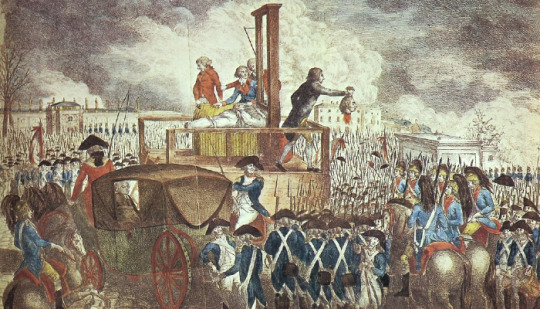
There is no question that Jefferson’s influence in the beginning of the French Revolution was very important. His initial moderate counsels and ideas helped in the beginning to prevent a civil war. His opinion that France was not mature to become a republic is probably right, because after 600 years of monarchy and aristocracy they people were not used to have any rights or take part in political matters. Jefferson thought that a republic had to develop from a constitutional monarchy. When you look to the cruel end of the French Revolution, Jefferson’s assessment was right up to a point.
Jefferson’s time as Secretary of State coincided with the most explosive phase of the French Revolution. What started as an attempt to dismantle the Ancien Régime and institute a constitutional monarchy blossomed into a radical experiment in creating an entirely new republican society. As his correspondence with Minister to France Gouverneur Morris and Minister to the Netherlands William Short during the emergence of the Jacobin Terror reveals, Jefferson responded to the violent radicalisation of the Revolution with enthusiastic support.
His advocacy for the French Revolution did not signify his emergence as a disruptive insurrectionist in favour of purposeless violence, anarchy and unbridled populism. Instead, he advocated for recognition and support of the Jacobin government as a successful international analog to the republican project he wanted to pursue at home at the expense of the “monarchical” aspirations of Hamilton and the Federalists.
In practice, the parallels he imagined between the ideal Jeffersonian and Jacobin republics were usually more apparent than real, as Jefferson often ignored the reports of Morris and Short in favour of fanciful idealising of his French counterparts – a problem Jefferson would only come to grips with in retirement.
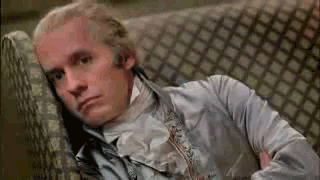
Despite these dilemmas, Jefferson’s impassioned advocacy for the French Revolution proved effective, emerging as a cornerstone of the burgeoning Republican Party’s foreign policy and remaining important well into the early nineteenth century, until the Revolution ceased to be an important political issue. It was not until he became President in 1801 that Jefferson’s views toward France began to cool and became more pragmatic, highlighted by the Louisiana Purchase Treaty.
#thomas jefferson#jefferson#french revolution#14 july 1789#bastille day#america#france#french#monarchy#republic#history#politics#ideology#jacobin#essay#diplomacy#ambassador#jefferson in paris#paris
65 notes
·
View notes
Text

R.I.P to one of the greatest actors of our lifetime Mr James Earl Jones
#james earl jones#the lion king#star wars#coming to america#the sandlot#field of dreams#roots the saga continues#actor#welcome home roscoe Jenkins#Jefferson in Paris#the hunt for red october#patriot games#conan the barbarian#a piece of the action#the river niger
4 notes
·
View notes
Text
#sally hemings#thomas jefferson#jefferson in paris edit#jefferson in paris#movie amv#movie edit#movie#movie film#film#historical fiction#edits#edit#patsy jefferson#martha jefferson#maria cosway#james hemings
16 notes
·
View notes
Text
MY INBOX IS IMPLODING HELP IT'S SOOO COOL, ALSO IF YOU WANT MORE THOMAS JEFFERSON MIKU BINDER (also sorry for my english i'm french and i almost never use tumblr i know there's tags and you should comment on there or smth like that but skdjfkakshdks i don't have the etiquette sry)



yay glowsticks :3

also free palestine 🇵🇸
#miku expo#miku expo paris#miku expo 2024#thomas jefferson miku binder#thomas jefferson cosplay#thomas jefferson#miku binder#cosplay#MACRON DEMISSION
6K notes
·
View notes
Text




JOE BURROW & JUSTIN JEFFERSON Vogue World Fashion Show in Paris, France | June 23, 2024
#joe burrow#justin jefferson#cincinnati bengals#bengals#nfl#football#dailymenedit#mancandykings#nfledit#sportsedit#footballedit#flawlessgentlemen#mensource#dailymensource#*#gifset#vogue world#paris fashion week#2024#genuinely still fucking floored this happened#i'm loving the new person he's becoming <3
548 notes
·
View notes
Text


2024 Paris Olympics 4x100 Women Champions
#olympics#paris 2024#paris#usa#united states#sha'carri richardson#melissa jefferson#gabby thomas#gabrielle thomas#twanisha terry#teetee terry
427 notes
·
View notes
Text
Congratulations to the Final 3 in the Women's 100m 🏃🏾♀️
Julien Alfred
10.72 🥇🇱🇨


Julien Alfred makes history by winning St. Lucia’s first-ever Olympic medal, clocking a lifetime best of 10.72

Sha'Carri Richardson
10.87🥈🇺🇲

Mellissa Jefferson
10.92 🥉🇺🇸

💜💜💜 CONGRATS LADIES 💜💜💜

#women's history#woc#poc#celeb#shacarri richardson#julien alfred#melissa jefferson#team st. lucia#team usa#black history#black women#black woman magic#olympics track and field#womens track and field#womens sports#sports#womens 100m#olympics#paris olympics#2024 olympics#olympics 2024#olympics paris 2024#paris 2024#paris olympics 2024#paris france#paris#2024 paris olympics
449 notes
·
View notes
Text


um excuse me??????????
#justin jefferson#joe burrow#nfl#girl?????#paris fashion week#suits#lordy#gifset#my gifs#WHERE did this come from
209 notes
·
View notes
Text








Joe Burrow & Justin Jefferson for Vogue Magazine (2024)
#joe burrow#justin jefferson#cincinnati bengals#bengals#nfl#football#paris fashion week#vogue world#2024#we really won didn’t we
245 notes
·
View notes
Text



USA WOMEN 4x100M 🥇🇺🇸
Paris, Olympics 2024
-Sha’carri Richradson
-Gabby Thomas
- Twanisha Terry
- Melissa Jefferson
#passionismybiggestdrug#paris olympics#olympics#usa team#usatrackandfield#usa#shacarri richardson#gabby thomas#twanisha terry#melissa jefferson#4x100m relay
147 notes
·
View notes
Text







Olympics,but lams!
#lams#art#john laurens#musical#Hamilton#Hamilton Musical#Alexander Hamilton#Tomas Jefferson#memes#paris olympics
96 notes
·
View notes
Text
#historical fiction#jefferson in paris#sally hemings#edit#thomas jefferson#edits#movie edit#movie film#jefferson in paris edit#movie amv
5 notes
·
View notes
Text

87 notes
·
View notes
Text


Justin and Ja'Marr in Paris
#ok this is actually the best birthday present#different outfits!! different settings!!!#they spent SO MUCH time in paris together actually and i couldn't be happier about it :') :')#what do we think they're talking about :)#ja'marr chase#justin jefferson
83 notes
·
View notes